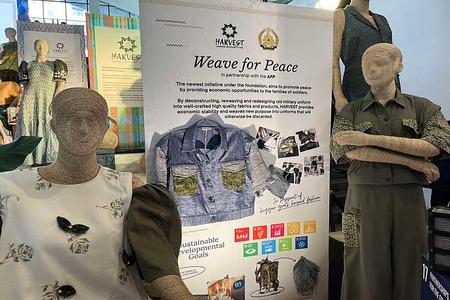
GSSB to create sustainability standard for textiles & apparel sector
YarnsandFibers News Bureau 2023-03-02 17:15:21 – CanadaThe Global Sustainability Standards Board (GSSB) has announced a new project aimed at developing a sustainability reporting standard for the textile and apparel industry. The new Global Reporting Initiative (GRI) Textiles and Apparel Standard will improve sustainability reporting for makers and retailers worldwide of apparel, footwear, textiles, and other textile products.
Concerns over the industry's effects on waste, recycling, and human rights led to the decision. Although there are programs in place to support sustainable practices, GRI stated in a news release that there is a lack of regular reporting.
The Textiles and Apparel Working Group is seeking multi-stakeholder members from corporate enterprises, investors, labor organizations, mediating institutions, and civil society on a worldwide scale. The group's main goal is to create a sector standard that enhances the sustainability reporting of companies involved in the textile, footwear, and apparel industries, making reporting more thorough and uniform across the industry.
Based on their greatest impacts, the sector standard developed by the Textiles and Apparel Working Group will select and specify material subjects for reporting organizations in the industry. Additionally, it will offer reliable sources and pertinent disclosures for reporting on such subjects. It is possible to suggest changes to other GRI standards and the sector standard's name, key, and scope. Revisions and updates to other GRI standards are also possible.
For the purpose of developing future GRI Standards, the GSSB will evaluate and rank the impacts found inside the project for which there is no GRI standard. Through improving openness and uniformity in sustainability reporting, the program hopes to encourage environmentally friendly practices in the textile and garment industry.
Mia d’Adhemar, head of Sector Program, added that the use of hazardous materials, water consumption and pollution, waste, greenhouse gas emissions, and working conditions are only a few of the effects of the textile and garment industry. A major obstacle to resolving these concerns is the prevalence of globally distributed value chains, in which businesses frequently operate in multiple nations with various commercial, legal, and ethical norms. How textile and garment industries identify, manage, and disclose their consequences on the economy, environment, and people need to be improved significantly. He welcomes specialists from across the sector and related stakeholder groups to apply to join their working group and support the development of this crucial standard.
The GSSB is solely responsible for developing the GRI Standards, which enable organizations to publicly report the impacts of their activities in a way that is transparent to stakeholders and other interested parties. These standards are the first to be globally accepted for sustainability reporting. The board adheres to GRI's vision and objective and only acts in the public interest.
Market Intelligence
Ask for free sample Report

experience
Customer Base
dedicated team
Countries Served Worldwide









